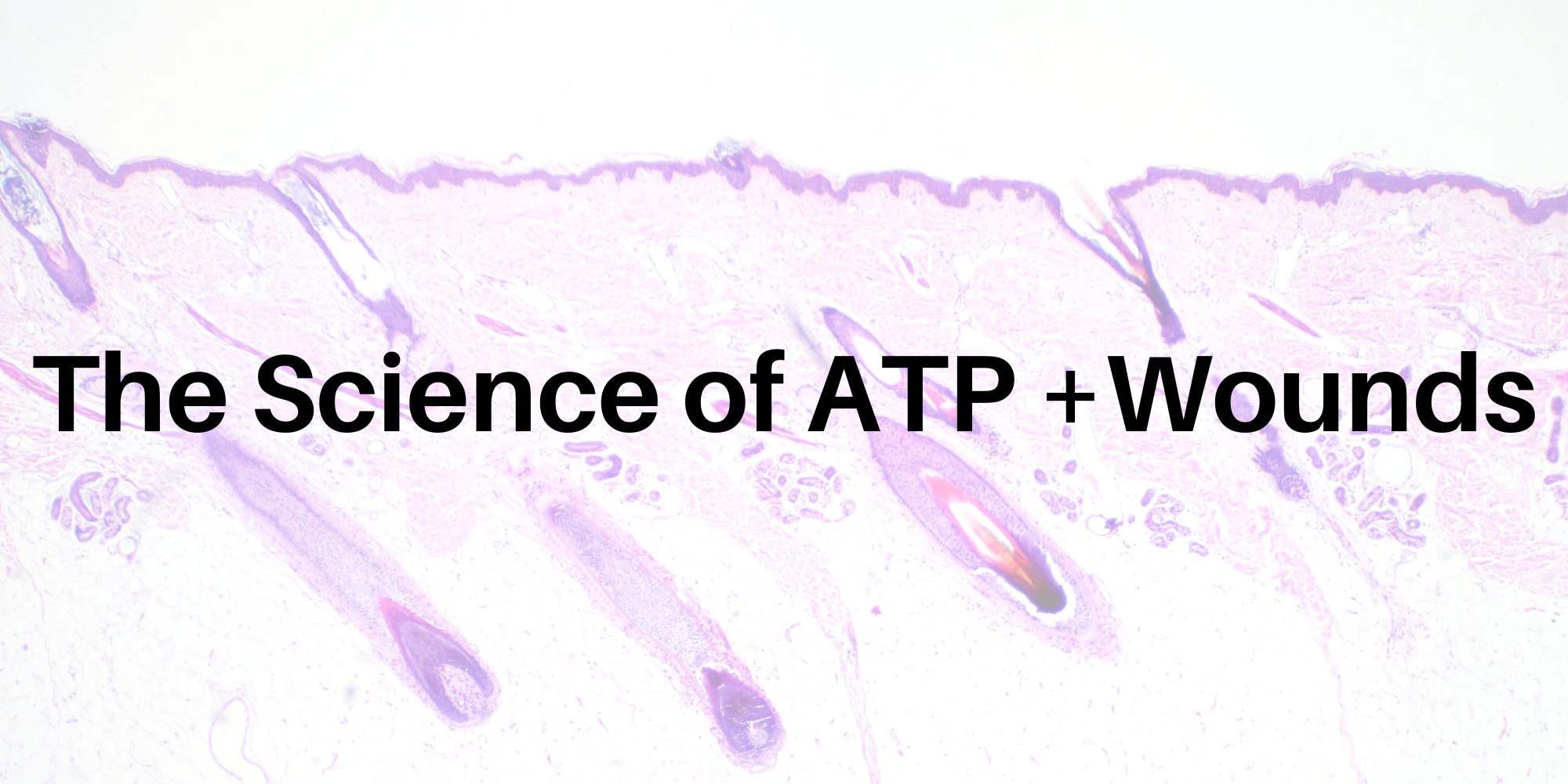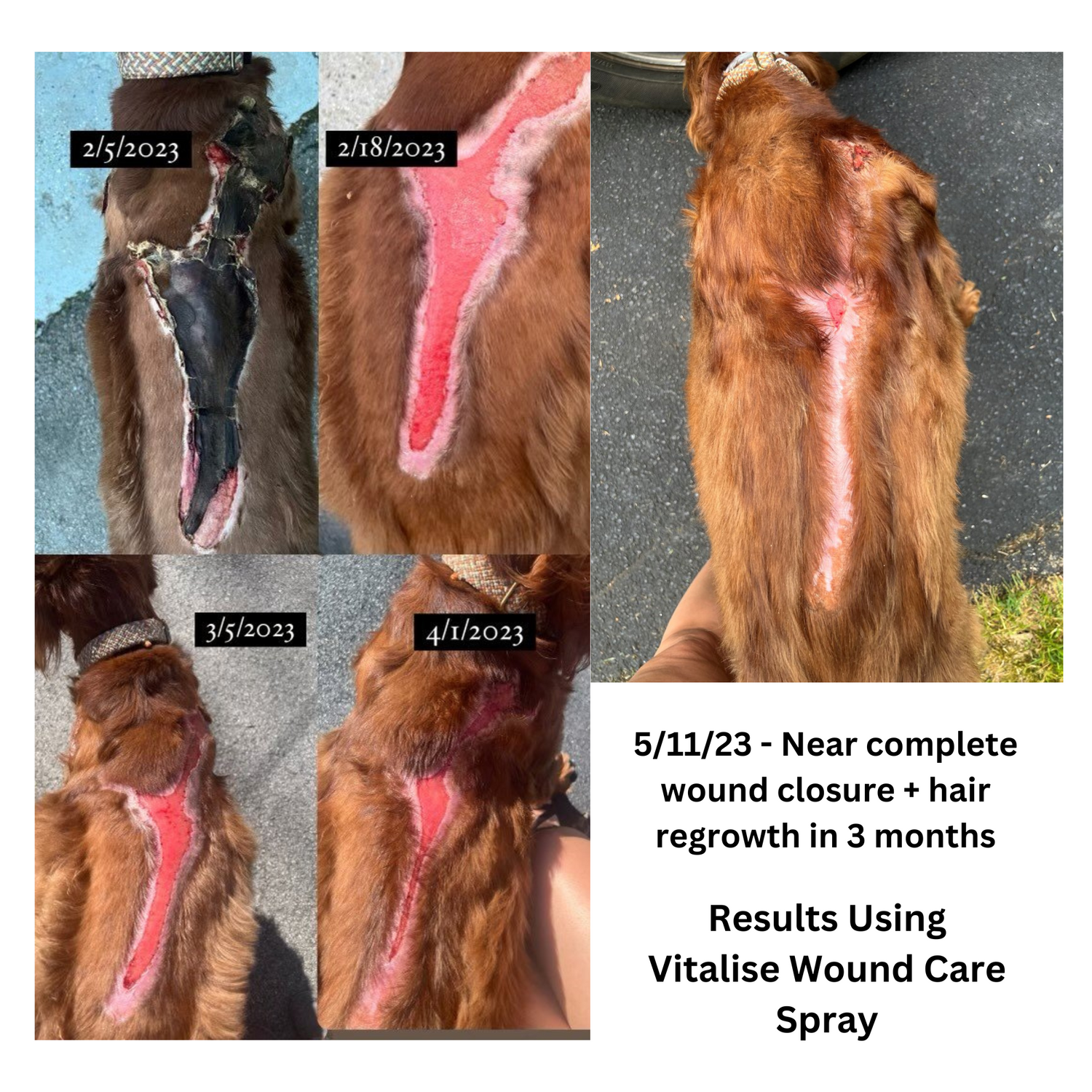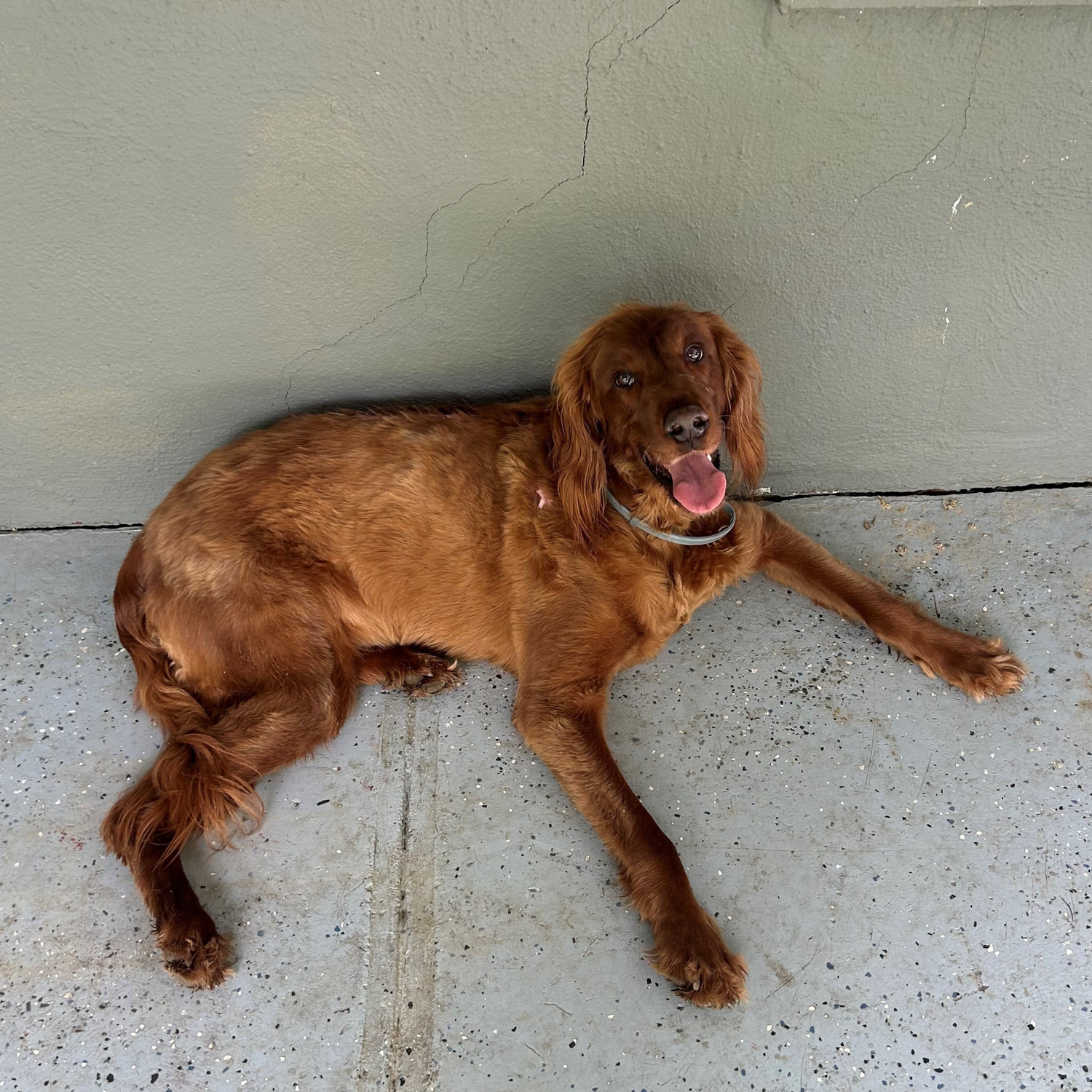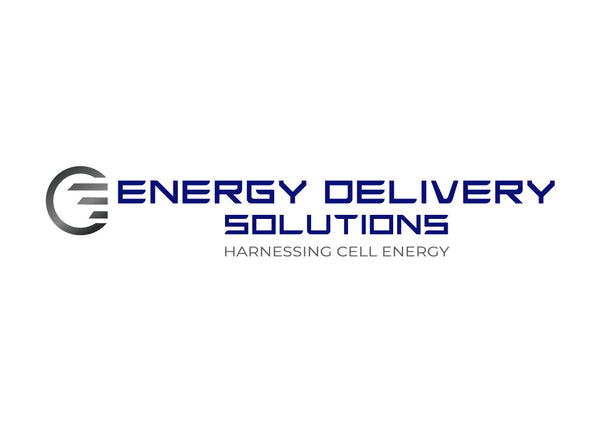
ATP is a Critical Component to Wound Healing
ATP is necessary for a myriad of functions; cell proliferation, formation of extracellular matrix, production of trophic factors, increasing blood flow, to name a few.
Collapsible content
Cell Proliferation
For a wound to heal there must be proliferation of cells to fill the wounded area. In order for cells to proliferate they must undergo mitosis (cell division). During mitosis, cells have to make copies of the DNA inside of the nucleus so that when the cell divides there is an identical cell. ATP is required to make the copies of the DNA and is required for the process of dividing the DNA into identical cells. Once the cell divides and begin to grow, proteins, lipids, and carbohydrates are required and each requires ATP in order to be assembled.
Formation of the Extracellular Matrix
As cells proliferate to fill a wound, they require proteins to be made and secreted so that the cells can attach to each other. These proteins form what is called the extracellular matrix or ECM. In order to produce the ECM, cells must produce these proteins and this requires large amounts of ATP. Wounds that have decreased blood flow have cells that have reduced ATP production, which leads to decreased ECM production, and wounds that have difficulty healing.
Production of Trophic Factors
Skin cells (and other cells that reside within the skin) produce trophic factors (growth factors, mitotic factors, cytokines, chemokines) that are responsible for controlling cell proliferation. ATP plays a role in growth factor production, and in addition, acts as a hormone to stimulate cells to produce growth factors. ATP also increases cytokines (substances that control immune responses) and chemokines (substances that attract other cells) levels that help to signal to the skin and rest of the body what is occurring in the affected area.
Increasing Blood Flow
When a wound occurs cells are broken open thus releasing the intracellular ATP. Once released by the damaged cells, ATP binds to receptors on neighboring blood vessels. These cells respond by making the diameter of the blood vessel larger and thereby increasing blood flow to the wound. Blood flow is critically important in wound healing as it brings nutrients (amino acids, lipids, sugars, ions) and oxygen, as well as removing cell by-products like carbon dioxide and urea.
Testimonial
WARNING: Below are pictures of large wounds on an animal due to an injury and show various stages of healing. Some may find these images emotionally disturbing.

Meet Willet.
Willet is a well-loved Irish Setter dog from eastern Kentucky. Unfortunately, Willet wandered off one early morning in February and was hit by a car on the highway. He suffered severe road burn that caused burns and scabbed wounds over the majority of his back.
*Warning: wound healing images below*

His owners purchased a bottle of Vitalise Wound Care Spray to use on his wounds shortly after the accident.
The spray was applied topically over the entire back wound once a day, every day.
Notice the wound closure and hair regrowth over time.

